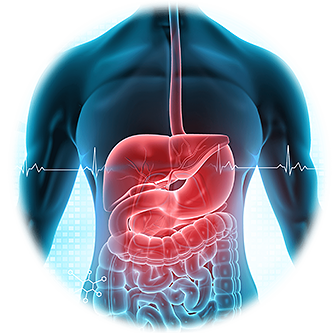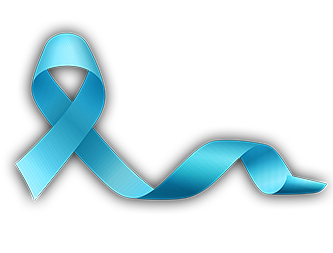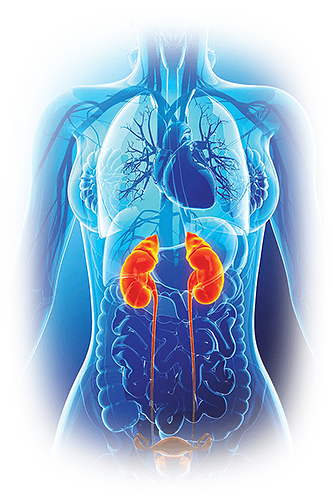Login
For Clinician Providers
For Clinician Providers
For Patients
U.S. Preparing for More 2019 Novel Coronavirus Cases
The U.S. Centers for Disease Control and Prevention (CDC) predicts there will be more U.S. cases of the 2019 novel coronavirus (2019-nCoV) in the coming weeks.
Coronaviruses are named for the crown-like spikes on their surfaces. Seven coronaviruses are known to infect humans. Most cause mild to moderate respiratory symptoms and are among the viruses associated with causing the common cold. But the 2019-nCoV, MERS (Middle East respiratory syndrome), and SARS (severe acute respiratory syndrome) coronaviruses can cause more severe symptoms, leading to pneumonia and death.
The number of cases in the U.S. is low so far, but as testing progresses, there is an expectation that the number will rise as new patients are diagnosed. To help the U.S. healthcare community respond to increasing 2019-nCoV cases, the Department of Health and Human Services declared a public health emergency on January 31, 2020. The situation is evolving quickly, and the CDC continues to closely monitor the outbreak. (For the most recent information, visit the CDC’s Situation Summary.)
Currently, the virus is not spreading in the community. As of February 4, 2020, all the people diagnosed in the U.S. recently returned from China or were in close contact with someone who returned from China.
Since December 2019, the virus has sickened thousands and killed hundreds of people in China. Numerous cases have also been reported in at least two dozen other countries. Due to concerns about the virus spreading to resource-limited countries, the World Health Organization (WHO) declared a global health emergency on January 30, 2020.
Because 2019-nCoV is a novel virus, everyone is potentially susceptible to infection and, at this time, it is not known who may develop serious complications. Unlike seasonal influenza, which can also cause serious illness and death, there is no vaccine or specific treatment for 2019-nCoV yet.
The World Health Organization said in a January 22 news conference that nearly three-quarters of reported 2019-nCoV cases at that point were in people over the age of 40 and most deaths had occurred in people with underlying health conditions, such as cardiovascular disease and diabetes. However, the virus has also sickened otherwise healthy, young individuals, causing symptoms similar to influenza (flu), including fever, cough and trouble breathing.
Like MERS and SARS, the 2019-nCov appears to have initially spread from animals to humans, but there is now clear evidence that it can spread from person-to-person through coughing, sneezing, and contact with contaminated surfaces. The first case of person-to-person transmission in the U.S. was reported on January 30 in a man who had not traveled to China but whose wife was ill after returning from China.
People infected with 2019-nCoV may have no symptoms at first but may be contagious while asymptomatic. The time between initial infection and becoming ill (incubation period) is unknown but may be up to 14 days.
The first 2019-nCoV cases reported in December 2019 were traced to Wuhan, the capital of Hubei Province in China, a major transportation hub with 11 million people. China’s Bureau of Disease Prevention says the virus is “highly infectious.” To contain the virus, China’s government has banned travel to and from Wuhan and the surrounding region during the country’s busiest transportation season around the Lunar New Year, a major holiday.
In the U.S., preparation despite low risk
The CDC considers the 2019-nCoV a serious public health threat but has emphasized that the immediate risk to the U.S. is currently low. “Outbreaks of new diseases are always of concern – and in today’s connected world, an outbreak anywhere can be a risk everywhere,” says a statement from the agency. It emphasizes that risk depends on exposure, especially close contact with an infected person.
In the U.S., diagnostic testing for the 2019-nCoV is currently only available through the CDC and public health laboratories. On February 4, 2020, the Food and Drug Administration (FDA) issued an emergency authorization for the molecular test developed by the CDC so that it could be distributed to public health labs across the country. The test uses PCR to detect the virus’s genetic sequence. The Chinese government had identified the unique genetic sequence of the virus from early cases and made it publicly available.
Any samples that test positive for 2019-nCoV at public health laboratories must be sent to the CDC for confirmatory testing. The CDC has issued lab and biosafety guidelines for collecting, handling, and processing respiratory samples from patients with suspected 2019-nCoV infection.
Travel and healthcare precautions
Following the WHO’s global health emergency declaration, the U.S. State Department issued a level 4 travel advisory warning against traveling to China. The CDC likewise recommends avoiding non-essential travel to China. Those who must travel to China should avoid sick people, live animal markets, animals, animal products, and should wash their hands well and often, according to the CDC.
Due to the public health emergency, all returning U.S. citizens who have been in the Hubei province in the last two weeks may be quarantined for 14 days. The CDC will conduct screening of U.S. passengers returning from other areas of China at several U.S. international airports, including those in New York, San Francisco, Seattle, Honolulu, Chicago, Los Angeles, and Atlanta. Passengers with symptoms such as high fever may have additional screening or off-site monitoring at specialized facilities.
Anyone who has traveled to China in the last 14 days and feels sick with fever, cough, or has difficulty breathing should seek immediate medical care but is advised to call ahead and notify providers of their recent travel and symptoms, according to the CDC.
Healthcare providers should ask patients with fever and respiratory symptoms to wear masks and describe recent travel. If patients have been to China, providers should call infection control staff and local or state health departments immediately. (For additional details, see the CDC’s Interim Guidance for Healthcare Professionals.)
Sources
(Updated January 31, 2020) 2019 Novel Coronavirus (2019-nCoV), Wuhan, China. CDC. Available online at https://www.cdc.gov/coronavirus/2019-nCoV/summary.html. Accessed February 3, 2020.
Information for Laboratories 2019-nCoV Requests for Diagnostic Tools and Virus. CDC. Available online at https://www.cdc.gov/coronavirus/2019-ncov/lab/tool-virus-requests.html. Accessed February 5, 2020.
(January 30, 2020) Sui-Lee Wee, Donald G. McNeil Jr. and Javier C. Hernández. W.H.O. Declares Global Emergency as Wuhan Coronavirus Spreads. New York Times. Available online at https://www.nytimes.com/2020/01/30/health/coronavirus-world-health-organization.html. Accessed February 3, 2020.
Media statement. CDC confirms additional cases of 2019 Novel Coronavirus in United States. Centers for Disease Control and Prevention (CDC). Issued January 26, 2020. Available online at https://www.cdc.gov/media/releases/2020/s0126-coronavirus-new-cases.html. Accessed January 29, 2020.
Transcript of 2019 Novel Coronavirus Response Telebriefing. CDC. Available online at https://www.cdc.gov/media/releases/2020/t0117-coronavirus-screening.html. Released January 17, 2020. Accessed January 24, 2020.
Transcript of International Health Regulations Emergency Committee on Novel Coronavirus in China meeting. World Health Organization. Available online at https://www.who.int/docs/default-source/coronaviruse/transcripts/ihr-emergency-committee-for-pneumon…. Accessed January 27, 2020.
Mike Arnot. The Coronavirus: What Travelers Need to Know. The New York Times. Available online at https://www.nytimes.com/2020/01/26/travel/Coronavirus-travel.html. Published January 27, 2020. Accessed January 27, 2020.
Scott Becker. Responding to the novel coronavirus (2019-nCoV) emerging in Wuhan, China. Association of Public Health Laboratories. Available online at https://www.aphlblog.org/2019-ncov-response/. Posted January 24, 2020. Accessed January 27, 2020.
Instructions for suspect cases of 2019 Novel Coronavirus (2019-nCoV), Wuhan, China. State Hygienic Laboratory at the University of Iowa. Available online at https://www.shl.uiowa.edu/news/coronavirus2020.xml. Issued January 27, 2020. Accessed January 27, 2020.
National Public Radio. Wuhan Coronavirus 101: What We Do — And Don’t — Know About a Newly Identified Disease. Available online at https://www.npr.org/sections/goatsandsoda/2020/01/24/798661901/wuhan-coronavirus-101-what-we-do-and-…. Published January 24, 2020. Accessed January 29, 2020.



